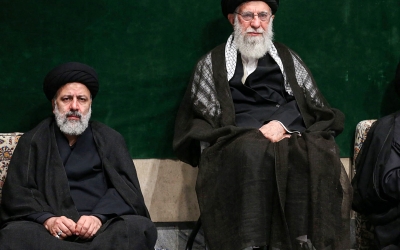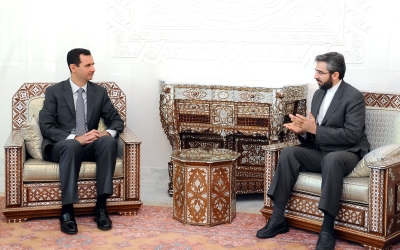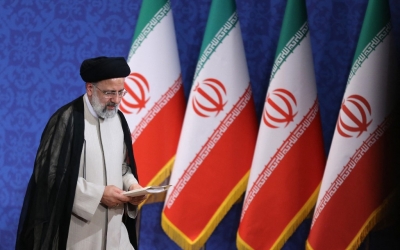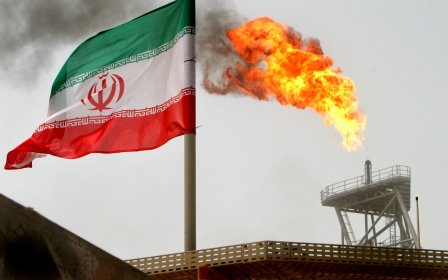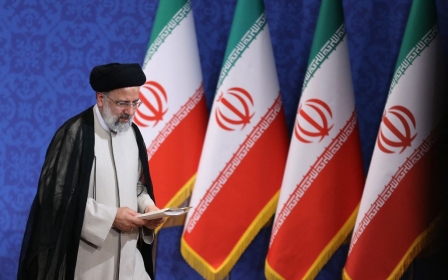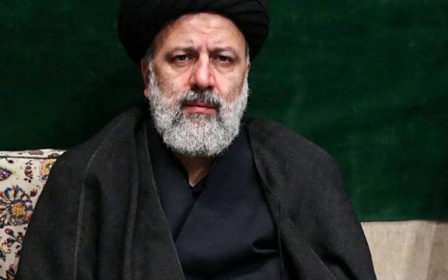Iran oil sector rocked by strikes as contract workers demand end to low wages
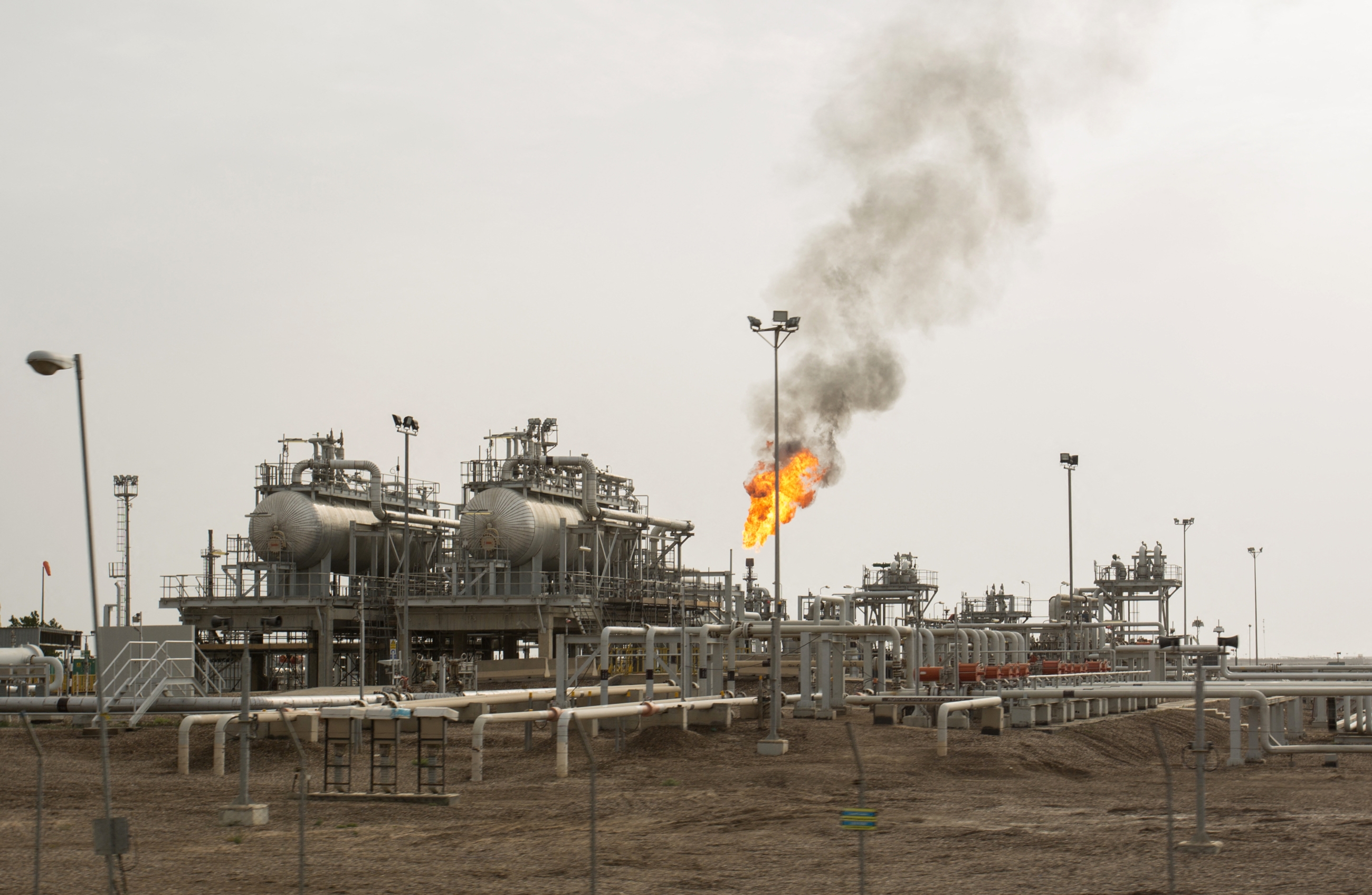
Thousands of mainly temporary and contract oil and petrochemical workers in Iran have been on strike across the country since 20 June, in coordinated action dubbed the Strike Campaign 1400, referring to the current year in the Iranian calendar.
The strikers are demanding higher wages and better contractual conditions, closer to those enjoyed by permanent workers in the industry.
With the reformist-backed President Hassan Rouhani leaving office next month, the ongoing strikes are set to present hardline cleric Ebrahim Raisi, who won June's presidential election, with one of his first and most significant challenges.
Over the past two decades, the state-owned Iranian National Oil Company stopped hiring permanent employees in many fields, as older workers retired, and turned thousands of new hires into temporary and contract employees.
The practice has also spread among smaller, newly emerging companies in the oil services and petrochemical industries.
According to official reports, there are at least 106,000 contract workers in the energy sector, workers who do not receive the benefits enjoyed by permanent employees of government entities.
A contract worker who participated in the strikes in Khuzestan told Middle East Eye: “Our salaries are less than half of the permanent oil workers, employed officially by the oil ministry, and we are denied many benefits of official staff, including access to the oil ministry's hospital facilities.”
“We are oppressed by the subcontractors and are deprived of the bonuses of the permanent workforce of the oil ministry.
"This is while we have the same expertise and experience of the permanent workers.”
Some permanent workers had also staged a strike over conditions, but decided to end their protest and give time for the oil ministry and the government to fulfil their demands.
Political establishment
The striking contract workers are not employees of the oil ministry and are employed temporarily by subcontractors, who are considered to be from the private sector.
The subcontractors act as a buffer between the workers and the oil and gas companies, and try to control workers’ demands by employing them on rolling short-term contracts.
The majority of subcontractors belong to economic holdings whose executives are chosen by the non-electoral parts of the political establishment.
The protests and strikes have reached many provinces of Iran, including Khuzestan, Bushehr, Tehran, Hormozgan, Ilam, Isfahan and West Azerbaijan.
The industrial action is the second general strike by temporary and contract oil workers in the past year.
In August 2020, workers organised a strike that lasted more than a month and spread to more than 50 oil centres and power plants in 10 provinces.
In most centres, the strike led to the acceptance of contractors' demands for a number of workers.
Oil workers' demands
Iran’s economy went into freefall following the US withdrawal from the 2015 nuclear deal in 2018 and its reimposition of harsh sanctions, with ordinary people in particular feeling the financial pressure.
The Central Bank of Iran has stated that living in the capital Tehran requires 110 million rials ($440) a month, while in other cities 100 million rials ($400) is needed.
By contrast, the minimum wage for contract workers is around 25 million rials ($100) a month and their maximum salary is a little over 40 million rials ($160).
As a result, the organising committee for the strikes has made seven demands for putting an end to their industrial action.
They include a salary of not less than 120 million rials ($480) and an increase in wages as inflation rises; a ban on the dismissal of workers; improved health and safety standards; and freedom of association and protest.
Meanwhile, last week's report of the dismissal of 700 workers at a Tehran refinery added to the anger of the strikers.
Although the initial report was denied by the refinery, it later confirmed that 35 contract workers had been dismissed by the subcontractors.
The organising committee for the strike has warned that if the demands of the striking workers are not met by the end of August, official permanent employees of the oil industry will join them.
'We showed our muscles'
A large number of the tens of thousands of contract workers in the oil and petrochemical industry have high levels of expertise and years of experience but receive low wages for their work.
Another contract worker in Khuzestan told MEE that sometimes some subcontractors do not pay the workers' salaries for months, while employees are still obliged to work more than 12 hours a day.
“I currently work 25 days a month and I have only five days off, while commuting itself destroys two days, leaving me only three days to live along with my beloved family," he said.
“While I sometimes work more than permanent workers who get 480 million rials ($1,920) as their monthly salary, I get around 55 million rials ($220) a month, and this is not fair at all.
“By stopping the projects, we showed our muscles and power to the subcontractors."
Official reaction
On 28 June, Iran's Oil Minister Bijan Zangeneh said the strikes were not related to his ministry and that the contract workers should pursue their demands through the labour ministry.
Zangeneh also said that any problems surrounding the permanent workers’ wages would be resolved by the end of the month.
Two days later, as the strikes continued, Rouhani also said that the workers’ strikes had nothing to do with the oil ministry, and that subcontractors should address the issue.
He also promised that the demands from permanent workers working for the oil ministry would be solved soon.
An economic journalist, who wished to remain anonymous, told MEE: “It seems that Rouhani and Zangeneh are trying to prevent the strikes from spreading to the permanent workers and employees of the oil ministry in the coming days - and to reach this goal, the government is promising to increase the salaries of the official and state sectors of the oil industry.”
The journalist said that if the permanent workforce of the oil ministry joined the strikes, then alarm bells would start ringing for the government,
That is what they are afraid of as such move by the permanent employees who play a crucial role in the industry, would disrupt the oil sector activities, he added.
Government under threat?
Many Iranians who remember the strikes that occurred before the 1979 Islamic Revolution are questioning whether the new strikes represent a serious challenge to Tehran as Iranians continue to face a dire economic situation.
Peyman Jafari, a historian at Princeton University with a focus on labour and energy history, told MEE he believes the previous oil workers' strikes contributed to a large extent to the victory of the Islamic Revolution.
“Oil strikes played a crucial role in the downfall of the Pahlavi monarchy," said Jafari.
"Starting in early September 1978 in the Tehran Refinery, strikes spread to the oil fields around Ahwaz and the Abadan Refinery.
"By early December 1978, oil workers had joined a general strike. As a result, the government’s oil income was threatened, and the military was faced with fuel shortages.
"The oil strikes thus paralyzed the state, but also imbued the protest movement at the time with the sense that with the oil workers on their side, victory was possible.”
Economic focus
Asked about the similarities of the current movements with pre-revolution strikes, Jafari said: “One similarity is the gap between permanent and contract workers in the oil industry – a gap that has increased dramatically since 1978, especially in the last two decades.
"In 1978, contract workers also demanded higher wages and permanent employment by the National Iranian Oil Company.
“There is one important difference. In 1978, there was a large revolutionary movement already in the streets, which gave the permanent oil workers the self-confidence to go on strike in their tens of thousands, and which also politicised the strikes rapidly.
"The current strikes are also influenced by the overall political crisis in Iran, but still focus on economic demands and have not yet reached the heart of the oil industry – the production.
"These cycles of protest are still about making demands, and show that making claims by direct action has become a routine practice in the Islamic Republic."
New president's next move
“Permanent workers have protested as well, but no significant strikes have emerged among them yet," said Jafari.
"If that happens, and other sectors join the strikes, the Islamic Republic will be in great trouble.
"However, that is not a certain path of development as the Islamic Republic still has the power to muddle through using repression, concessions, and divide and rule.
"As the strong organisation of the contract workers demonstrates, they are also learning and developing new strategies.”
As he takes office next month, it remains to be seen whether or not Raisi will take advantage of his warm ties with the political establishment, which has many of the subcontractors under their control, to improve the conditions for the contract workers.
Middle East Eye delivers independent and unrivalled coverage and analysis of the Middle East, North Africa and beyond. To learn more about republishing this content and the associated fees, please fill out this form. More about MEE can be found here.


